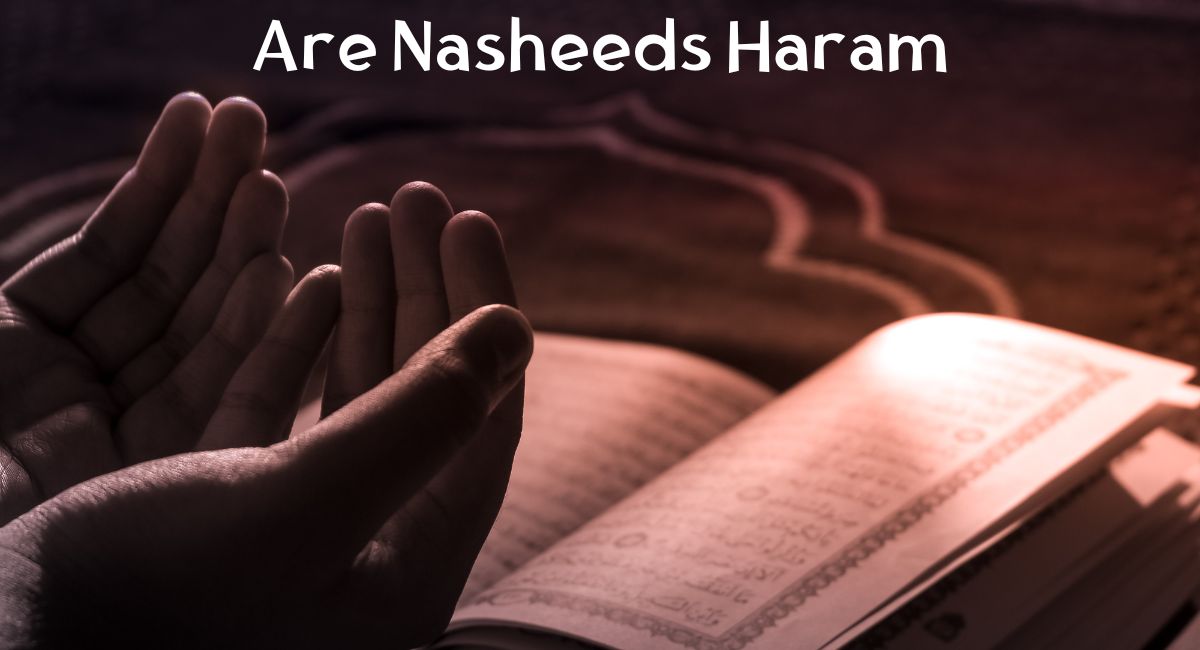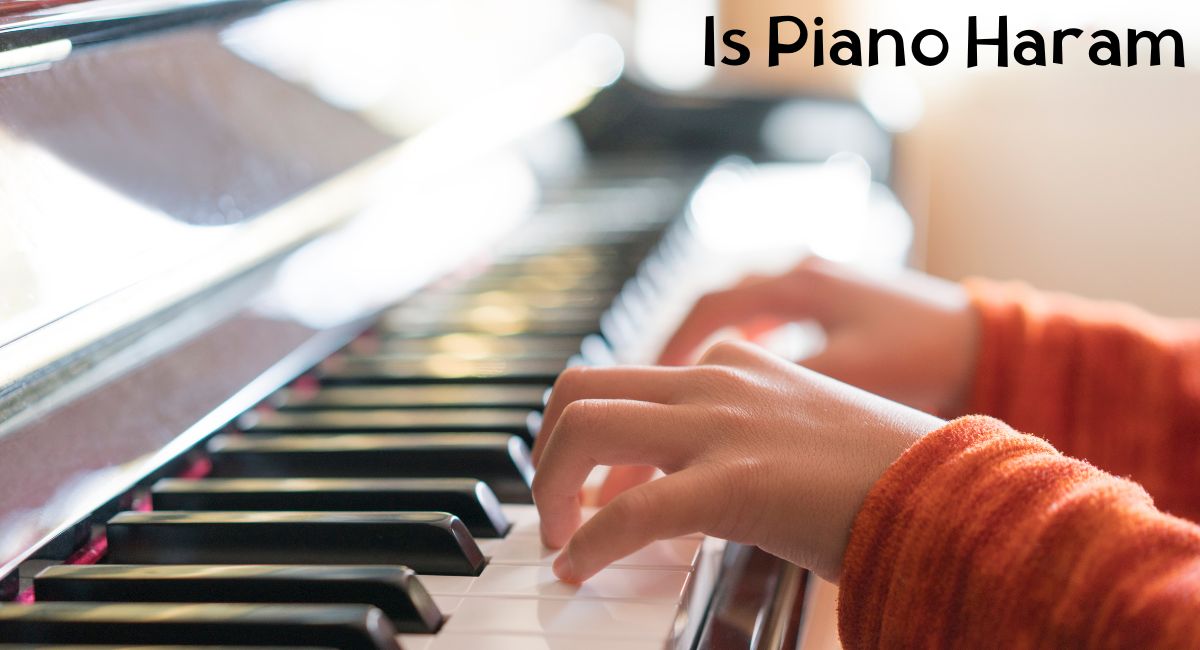Nasheeds, or Islamic devotional songs, have become hugely popular in the Muslim world and beyond in recent years. Their upbeat rhythms and catchy melodies make them attractive listening for many. However, nasheeds have also become a subject of intense debate among Islamic scholars regarding their permissibility.
Conservative scholars argue that all musical instruments are haram (forbidden) and that nasheeds can promote un-Islamic values. More liberal scholars contend that nasheeds are permissible if they contain righteous messages and refrain from vulgar content.
With passionate arguments on both sides, the question remains: given their potential benefits and harms, are nasheeds fundamentally permissible or prohibited according to Islamic law?
This article will explore the evidence behind the views of both camps, analyze the key issues surrounding nasheeds, and aim to provide guidance on whether enjoying this modern musical phenomenon is halal or haram for the believing Muslim.
Key Takeaways
- There are differing perspectives among Islamic scholars on the permissibility of nasheeds – some consider them absolutely haram while others allow them with certain conditions.
- Those who prohibit nasheeds argue that all musical instruments are haram based on hadiths, and modern nasheeds can deviate from Islamic values.
- Scholars who allow nasheeds say there is insufficient evidence for complete prohibition, and permissibility depends on lyrical content aligning with Islamic teachings.
- Caution is advised by scholars to avoid excessive attachment to nasheeds, inappropriate content, and prioritizing them over religious duties.
- Concerns have been raised over evolution of modern nasheeds using musical instruments and enchanting voices, making them more like secular songs.
- Some scholars have retracted initial permissibility stances and now stipulate conditions like avoiding instruments and provocative elements.
- There is need for careful evaluation of each nasheed to check for Islamic compliance in lyrics, voices, instruments use, video content before deeming it halal.
What Are Nasheeds
Nasheeds are a form of vocal music that is popular in the Muslim world. They are often characterized by their focus on religious and ethical themes, though they can also address a wide range of subjects related to personal, social, and spiritual life. Traditionally, nasheeds do not include musical instruments, or they may only incorporate percussion instruments, in line with certain interpretations of Islamic teachings regarding music.
Key characteristics of nasheeds include:
- Lyrics: The content of nasheeds is generally focused on Islamic themes, such as praise of Allah, the Prophet Muhammad, and other religious subjects. They can also include lyrics about moral values, history, and current events.
- Vocals: Nasheeds are primarily vocal. Singers may perform solo or in groups, and the style can range from simple chants to complex vocal arrangements.
- Instruments: Traditional nasheeds are acapella or use only basic percussion instruments. This is because many Islamic scholars believe that the use of musical instruments is either completely forbidden or restricted in Islam. However, some modern nasheeds incorporate a wider range of instruments, which has led to debates about their permissibility.
- Purpose: Nasheeds are often used for religious and educational purposes, such as in religious gatherings, schools, and celebrations. They serve as a means of spiritual meditation, moral instruction, and religious education.
- Variety: There is a wide variety in the style and form of nasheeds across different cultures and regions. The tone can range from solemn and meditative to joyful and celebratory.
In recent years, nasheeds have gained popularity beyond traditional settings, partly due to the rise of digital media, which has allowed for wider distribution and innovation in the genre. However, this popularity has also led to debates within the Muslim community about the role and form of nasheeds in contemporary Islamic practice.
What is the Difference Between Naat and Nasheed
The terms “Naat” and “Nasheed” both refer to types of Islamic vocal music, but they have distinct characteristics and cultural contexts:
| Aspect | Naat | Nasheed |
|---|---|---|
| Focus | Naats are specifically devoted to praising the Prophet Muhammad. The lyrics of a Naat are expressions of love, respect, and honor towards the Prophet, and they often recount his life, virtues, and his place in Islam. | Nasheeds are more general Islamic vocal music. They can include praises of Allah, the Prophet Muhammad, and other religious themes, but they also cover a wider range of topics, including moral values, history, and current events. |
| Cultural Context | Naats are particularly popular in South Asian Muslim cultures (countries like Pakistan, India, and Bangladesh). They are an integral part of religious celebrations, especially during Mawlid (the birthday of the Prophet Muhammad). | Nasheeds are common across the entire Muslim world. They are not limited to a specific region or culture and have a more universal appeal within Islamic traditions. |
| Language | Naats are predominantly performed in languages like Urdu, Punjabi, Persian, and Arabic, reflecting the linguistic heritage of the regions where they are most popular. | Nasheeds are performed in a variety of languages, depending on the region. They can range from simple chants to more elaborate vocal arrangements. Modern nasheeds sometimes incorporate contemporary musical styles and instruments, leading to a diverse range of forms. |
In summary, while Naat is a specific genre of Islamic vocal music focusing exclusively on praising the Prophet Muhammad and is deeply rooted in South Asian Muslim culture, Nasheed is a broader category of Islamic vocal music with a wide range of themes and a more universal presence in the Muslim world.
Are Nasheeds Haram
There has been ongoing debate regarding the permissibility of listening to nasheeds in Islam. Some argue that nasheeds are a permissible and enriching form of entertainment, while others consider them to be haram, or forbidden, due to potential violations of Islamic moral and ethical principles. Below, we will explore the different perspectives on this topic to determine whether nasheeds are truly haram or if they can be enjoyed without infringing on religious boundaries.
The Argument Against Nasheeds
One of the main arguments against the permissibility of nasheeds in Islam is the belief that all musical instruments are Haram. This perspective is based on a hadith that mentions the use of musical instruments as one of the acts that will be considered lawful by some people but is deemed forbidden in Islam.
Narrated Abu ‘Amir or Abu Malik Al-Ash’ari:
that he heard the Prophet saying, “From among my followers there will be some people who will consider illegal sexual intercourse, the wearing of silk, the drinking of alcoholic drinks and the use of musical instruments, as lawful. And there will be some people who will stay near the side of a mountain and in the evening their shepherd will come to them with their sheep and ask them for something, but they will say to him, ‘Return to us tomorrow.’ Allah will destroy them during the night and will let the mountain fall on them, and He will transform the rest of them into monkeys and pigs and they will remain so till the Day of Resurrection.”
Sahih al-Bukhari 5590 – Book 74, Hadith 16
According to scholars who hold this view, listening to music, including nasheeds, is seen as engaging in activities that are similar to drinking alcohol or participating in sinful behaviors.
Furthermore, these scholars express concerns about the lyrics and content of modern music, including nasheeds. They argue that secular music and even some Islamic nasheeds deviate significantly from Islamic teachings and values.
As a result, they advocate for the replacement of all music, including nasheeds, with the recitation of the Quran, which is considered the purest form of Islamic worship.
It’s important to note that scholars who believe that all musical instruments are Haram do not differentiate between different types of music or nasheeds. They hold a strict stance that all forms of music are forbidden, regardless of their content or message.
This perspective on the ruling of nasheeds has sparked debates and discussions within the Islamic community, with supporters and opponents presenting their own arguments and interpretations.
The Argument in Favor of Nasheeds
While some scholars argue that all forms of music, including nasheeds, are haram, others believe that musical instruments are not inherently forbidden in Islam.
Conditions for Permissible Nasheeds:
- The words of the nasheed should be free from haraam or foolish content, promoting righteousness and good morals.
- The use of musical instruments should be avoided, as they are generally considered haram in Islamic music.
- Avoid imitating haraam sound effects or elements that are associated with indecent songs.
- Refrain from developing a habit of excessive listening to nasheeds, as this can distract from fulfilling religious duties.
Additionally, scholars caution against the inclusion of enchanting voices or soft voices with body movements in rhythm, as this can lead to inappropriate or distracting experiences. The video clips accompanying nasheeds should also avoid provocative elements and adhere to Islamic guidelines.
Advocates of this viewpoint argue that the complete prohibition of music lacks sufficient textual evidence and is not consistent with the broader principles of Islam.
They emphasize the importance of considering the context and intention behind the music, as well as its impact on individuals and society. It is crucial to ensure that the lyrics and content of the nasheed align with Islamic values and teachings, promoting righteousness and spiritual growth.
However, it is essential to note that scholars who support the permissibility of nasheeds also highlight the need for caution and moderation. They discourage excessive attachment to music and emphasize the importance of prioritizing religious obligations overindulgence in entertainment.
Additionally, they draw a clear distinction between permissible nasheeds and the wider modern music industry, which often promotes immoral and un-Islamic behavior.
Sheikh Salih Al-Fawzaan’s Perspective on Nasheeds
Sheikh Salih Al-Fawzaan, a respected scholar, shares his view on nasheeds, expressing concerns about their evolution over time. According to him, nasheeds have deviated from their original purpose and have become more like the songs of evildoers. Al-Fawzaan argues that Islam has not legislated anasheed and categorizing them as “Islamic” is incorrect.
“Nasheeds should adhere to the principles of Islam and not include haraam elements,” Al-Fawzaan emphasizes. He warns against the inclusion of women wearing makeup, provocative voices, and the presence of evildoers in nasheeds and their video clips. Al-Fawzaan stresses the importance of maintaining the sanctity of Islamic teachings and ensuring that nasheeds do not contradict them.”
It is noteworthy that Sheikh Salih Al-Fawzaan’s perspective highlights the need for caution and adherence to Islamic principles when it comes to nasheeds. His insights serve as a reminder to consider the content and context of nasheeds in order to ensure their compliance with Islamic values.
Retraction of Permissibility and Stipulated Conditions
Prominent scholars, including Shaykh Muhammad ibn Saalih al-‘Uthaymeen, have retracted their initial stance on the permissibility of nasheeds or stipulated conditions for their permissibility. They express concerns about the changes in nasheeds, such as the introduction of duff or the selection of performers with enchanting voices.
They emphasize that if a nasheed is free of elements that go against Islamic principles and teachings, it may be considered permissible. However, the inclusion of forbidden elements, such as musical instruments or imitating indecent songs, renders the nasheed impermissible.
Shaykh Muhammad ibn Saalih al-‘Uthaymeen has raised questions regarding the use of certain musical instruments in nasheeds. He argues that the use of instruments like the duff can lead to a deviation from the original purpose of nasheeds.
According to his perspective, the inclusion of musical instruments, coupled with the presence of performers with enchanting voices, may contribute to the emotional stimulation associated with sinful music, rather than the intended spiritual enhancement. Therefore, he cautions against the inclusion of such elements and encourages a return to the original form of nasheeds that aligns with Islamic teachings.
It is important to note that while Shaykh Muhammad ibn Saalih al-‘Uthaymeen holds this view, there are other scholars who may have different perspectives on the permissibility of nasheeds. Nonetheless, considering the concerns raised by respected scholars like Shaykh Muhammad ibn Saalih al-‘Uthaymeen highlights the need for individuals to exercise caution and discernment in their consumption of nasheeds.






